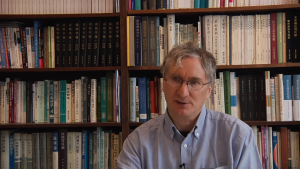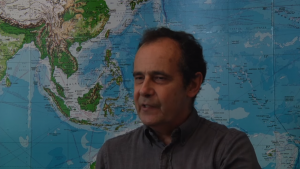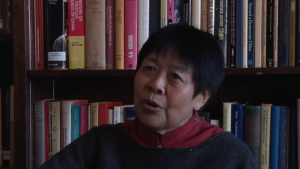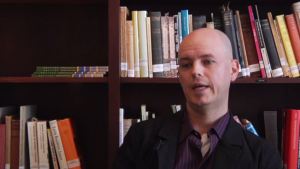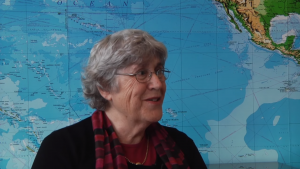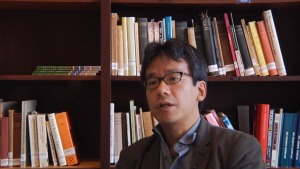New Taxation Rules: First Steps to Building the Great Mall of China?
Memo #46 – In September 2010, the People’s Republic of China (PRC) began strictly enforcing a new taxation rule. The new rule (Notice No.54 of 2010) claims to standardize and bring transparency to PRC borders. It will tax luxury items and electronics, limit quantities of popular household items purchased abroad, and, in effect, encourage middle and upper class Chinese citizens to shop at home.
Canada and China: Facilitating Transactions or Building a Strategic Understanding?
Memo #45 – Forty years of diplomatic relations between Canada and China were celebrated in October 2010 at multiple events held in both countries. In Ottawa, Prime Minister Harper proclaimed that the bilateral strategic partnership “has never been more promising.” In Beijing, Canada’s Ambassador stated that “if ever there was a golden age in Sino-Canadian relations it is now.”
Misinterpreting Globalization in the Context of Japanese Education Policy
Memo #43 – In a recent keynote address to the annual meeting of the Japan Studies Association of Canada hosted by UBC’s Centre for Japanese Research, Takehiko Kariya (Oxford University) argued that many changes in educational policy in Japan in the past fifteen years have been motivated by an understanding of globalization in terms of a knowledge economy. Policy makers were mistaken in this understanding. Instead, another impact of globalization has become more visible recently in Japan: the decline of full-time, long-term jobs. Rising inequality and lack of career opportunities rooted in a class-based distribution of learning competency, or the ability to learn, are being exacerbated rather than ameliorated by misguided educational policies.
Analyzing a Potential President Obama Visit to Hiroshima or Nagasaki
Memo #42 – A potential visit by President Obama to Hiroshima or Nagasaki to acknowledge victims of the nuclear attacks would help U.S.-Japan relations. But it may also alienate Asian countries that suffered wartime atrocities by Japan.
Conditions in Tibet Since 2008
Memo #41 – In this interview, Dr. Robert J. Barnett, Director of the Modern Tibetan Studies Program at Columbia University, assesses the importance of the International Association of Tibetan Studies (IATS). The IATS brings together international scholars and scholars from within Tibet and China. In August 2010, Dr. Barnett was a participant of the 12th Seminar of the IATS, which was hosted by the Institute of Asian Research at the University of British Columbia.
Lessons from Rebuilding Kobe after the 1995 Hanshin Earthquake
Memo #40 – The Great Hanshin earthquake devastated Kobe on January 17, 1995, leading to 6000 deaths and the destruction of over 200,000 homes. Beyond immediate reconstruction and recovery, the book, “Reconstructing Kobe: The Geography of Crisis and Opportunity” examines the long-term planning implications of the disaster. What were the city’s objectives in rebuilding urban areas? How were the hundreds of thousands of displaced people housed? How was Kobe’s urban economy affected?
Interview with Dai Qing, the Environmental Activist, Investigative Journalist, and Writer
Memo #39 – The indomitable Dai Qing (戴晴) has chosen to demand answers to uncomfortable questions and bring to account a system that dreams big dreams but harms those it is meant to serve. Ms. Dai is perhaps best known for her active opposition to the Three Gorges Dam project, which led to her imprisonment for ten months in 1989. Her new work with her long-term partners Toronto-based environmental NGO Probe International is an oral history of Beijing residents’ responses to their city’s water crisis. Rapid development has drastically reduced the capital’s water supply and sparked a massive new project to divert (highly polluted) water from the south to the north. This project would displace several hundred thousand people en route and promises to be at least as problematic and disruptive as the Three Gorges Dam.
Japan’s Beer Industry a Window to the Past
Memo #37 – Japan’s microbrewing, or ji-biiru (地ビール) industry has gained increasing attention in recent years, fuelled by a host of entrepreneurs with both creative recipes and a flare for showcasing Japan’s lengthy history of beer production. Until 1900, Japan was home to well over a hundred small brewers, most of which lasted just a few years. The ji-biiru boom is once again witnessing a trend toward the production of many small, local craft beers. Many of these startups have dusted off old brands and labels, and are often claiming to have been “established in 1885” or thereabouts, when in fact they are new firms. This modest challenge to the market dominance of megabrewers like Sapporo, Kirin, and Asahi is fuelled by consumers’ preference for different or local flavours. It is prompting the leading firms to add similar products to their stable of established brands.
The Chinese People at War
Memo #36 – Dr. Diana Lary, Professor Emerita of History at the University of British Columbia speaks about her new book, the “The Chinese People at War”. The book looks at the impact of the War of Resistance Against Japan (抗日戰爭) (1937-1945) on the people of China. It was a period of extreme social upheaval. Society was torn apart in fighting, bombing, and occupation. Tens of millions of people were made refugees; people were displaced by fighting and by scorched earth actions. Families were separated and divided, not only by the conflict but by decisions on whether or not to accept the invaders and stay in the occupied areas.
Domestic and International Japanese Politics in the 21st Century
Memo #35 – In this interview, Dr. Masaru Kohno, Professor, School of Political Science and Economics, Waseda University, discusses the future of Japanese politics in light of recent developments. Japan’s new ruling party will continue to face constraints and challenges.

